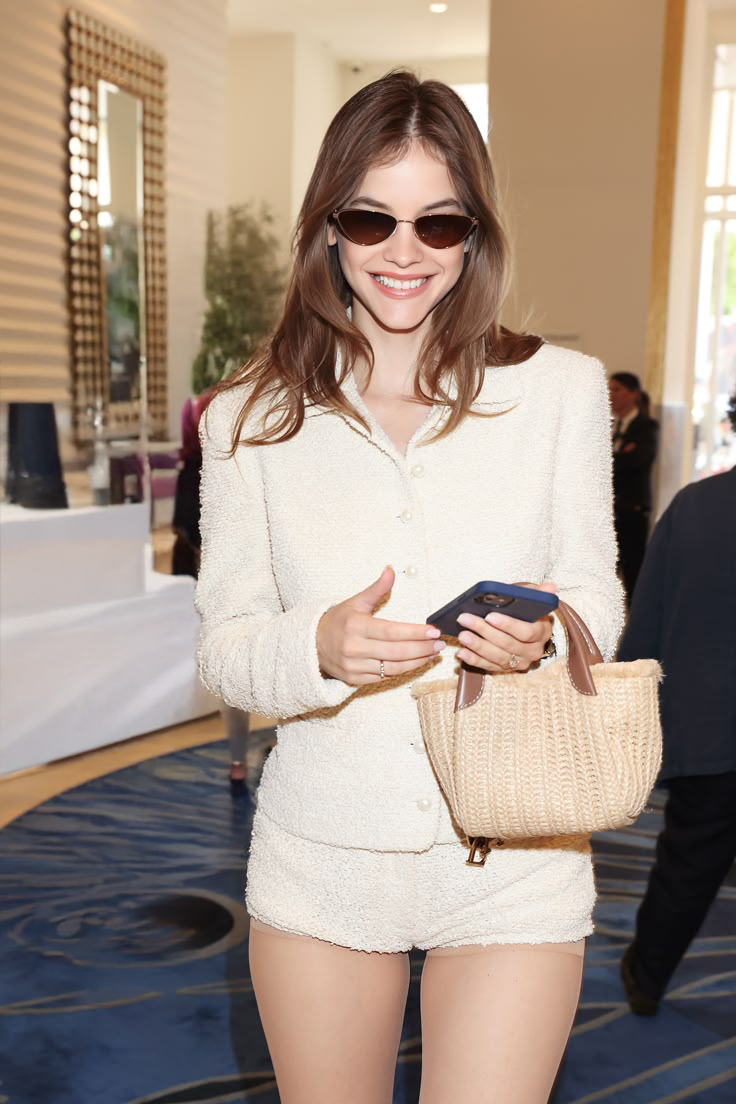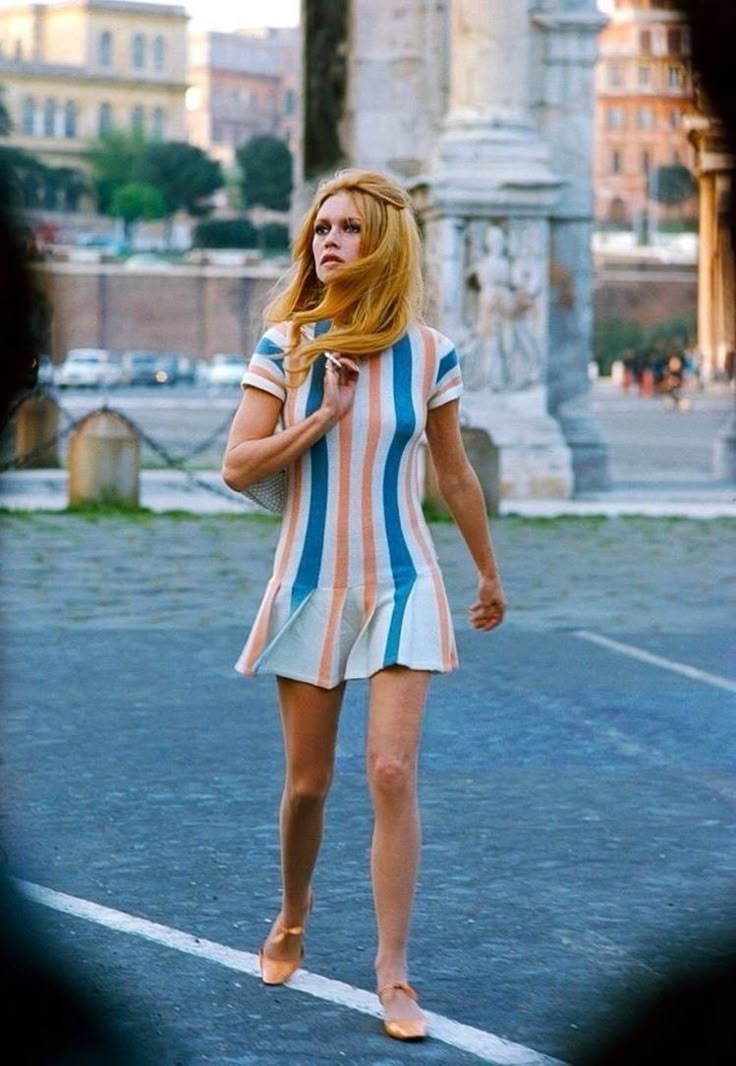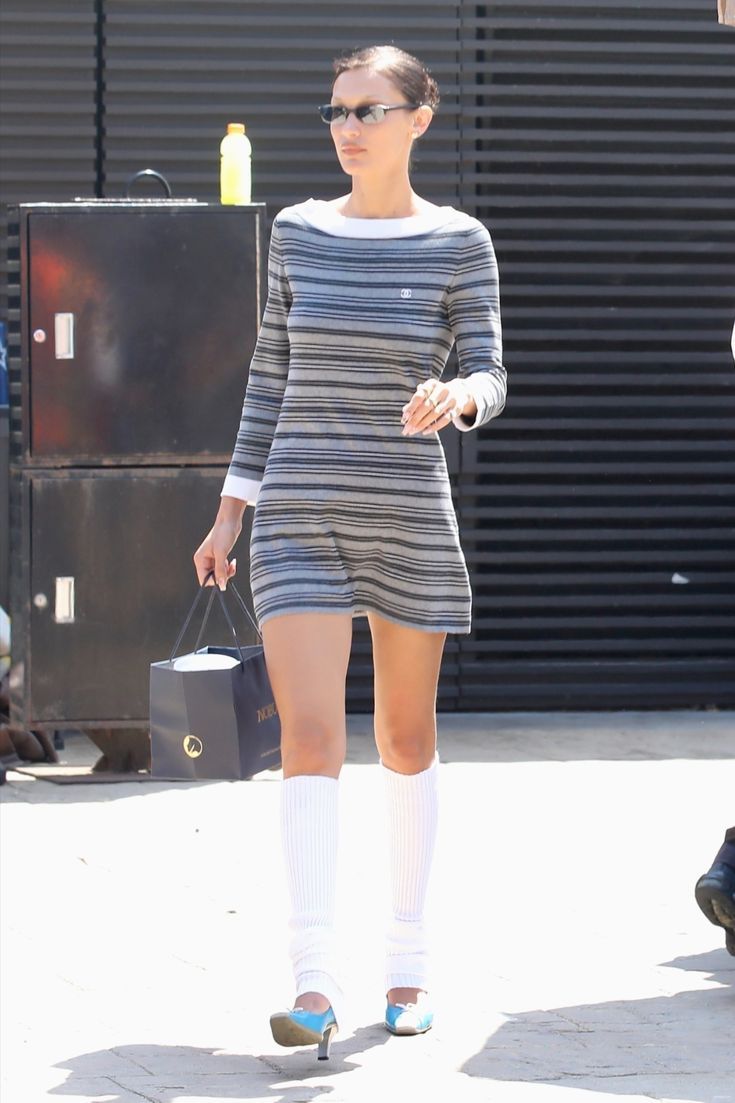To move like memory
Balletcore Outfits and Their Quiet Movement Through Fashion History
The legacy of Balletcore
She walks slowly, but with purpose. Her silhouette is long, her palette is soft. There is something practiced, poised, and inwardly powerful about her presence—as if her body remembers choreography she’s never performed. This is the feeling that belongs to balletcore. Not a trend, but a pulse that has always existed in fashion’s subconscious.
Balletcore isn’t about tutus. It’s about the tension between strength and softness, repetition and release. And while the internet cycles through microtrends faster than ever, balletcore is now more prominent than ever—anchored in decades of aesthetic evolution.
To understand it today, we return to three moments where ballet and fashion met and left the world forever changed.

Chapter one
Chanel’s Radical Lightness
In 1924, Gabrielle Chanel did something fashion hadn’t done before: she stepped into the theatre. Designing costumes for Sergei Diaghilev’s Ballets Russes, she brought jersey—once a fabric of undergarments—to the stage. This wasn’t just a shift in texture. It was a declaration: movement mattered.
Until then, ballet costumes were heavily corseted, layered, built for spectacle over comfort. Chanel stripped that away, offering dancers freedom and fluidity. The effect wasn’t lost on her couture. The silhouettes of her daywear—loose, androgynous, confident—carried the same energy. Women didn’t just wear her designs; they moved in them.
Ballet and modernism converged. Chanel’s ballerinas weren’t fragile—they were self-possessed. And the visual language she helped build—clean lines, neutral tones, unadorned grace—still defines Chanel's balletcore’s DNA today.
Chapter Two
The 1960s Off-Duty Icon
Then came the sixties. If Chanel introduced freedom of movement, the 1960s taught us how to wear it offstage.
It was the era of Bardot and Hepburn, of studio rehearsals photographed like editorials, of ballet flats worn not just to plié, but to protest, pose, and promenade. Audrey Hepburn, in cropped trousers and black flats, turned dancewear into daily uniform. Her leotards, high buns, and minimalist silhouettes came to define a cinematic kind of femininity: quiet but deliberate, softly sculptural.
Meanwhile, Brigitte Bardot asked Repetto to design a ballet flat she could wear on the street. The result? The Cendrillon, still sold today, still synonymous with Parisian ease. And the entire world—glancing into French cinema and black-and-white photographs—fell in love with that undone elegance. Balletcore stepped off the stage, and into the real world.

chapter three
The 90s — Minimalism With Memory
Fast forward to the 90s. A decade obsessed with structure, with unspoken rules, and yet—fashion returned to the body in motion.
Slip dresses reigned. Calvin Klein made flesh and fabric nearly indistinguishable. Phoebe Philo, then at Chloé and later Céline, sculpted clothing that felt like breath—weightless, elegant, architectural. Kate Moss floated in satin, Carolyn Bessette-Kennedy in simple sheaths. Nothing frilled. Everything mattered.
The silhouettes borrowed from the ballet studio: low necklines, soft straps, second-skin layers. But this wasn’t fantasy. It was form, stripped bare. Even the shoes—the delicate Miu Miu ballet flats, the barely-there sandals—spoke in a dancer’s tone. Not loud. But unforgettable.
Balletcore Now — Dressed for Discipline and Dream
Today, balletcore has returned not with a bang, but with a sigh. As quiet luxury dominated the cultural conversation, balletcore moved alongside it, but with more emotion.
On the runway and in the streets, it's everywhere: in Miu Miu’s satin ballet flats and Alaïa's mary jane flats worn with oversized coats. In The Row’s silk slip skirts, styled with sculptural knitwear and hair pulled back. In Khaite’s ethereal dresses, flowing like choreography. In the soft layering at Leset, the sculptural leather handbags from Savette that mirror a dancer’s port de bras.
Pinterest searches for balletcore outfits are up over 170% year-on-year. Google Trends shows rising interest in how to wear ballet flats, with Gen Z leading the charge. TikTok has over 380 million views under the hashtag #balletcore. But the aesthetic remains intimate. It's not costume. It's expressive but poised.
The palette remains pastel—soft rose, dove grey, bone, powder blue. The shoes are slipper-like. The dresses whisper at the hem. Headbands return, not as accessories but as punctuation marks. And underneath it all is creative freedom and softness held in balance.
Balletcore isn’t just about ballet. It’s about how we choose to move through the world—elegantly, deliberately, and always with grace.






















































































































































